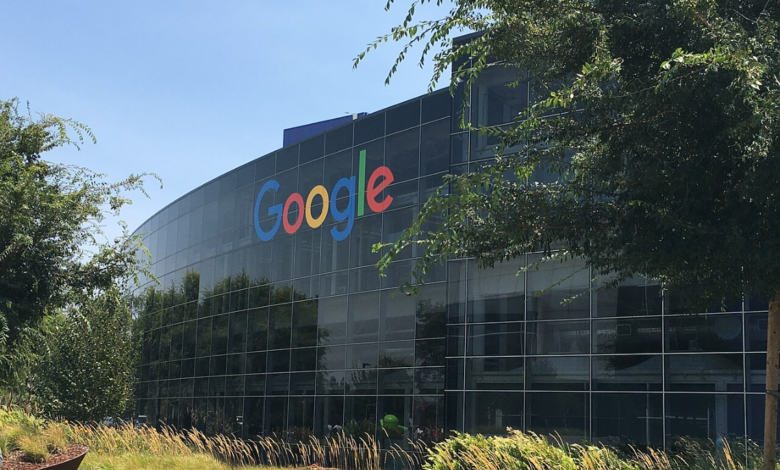Will Google Be Broken Up? DOJ Pushes for Chrome Sale
U.S. Department of Justice Calls for Breakup of Google and Sale of Chrome in Landmark Antitrust Case

In a bold and unprecedented move, the U.S. Department of Justice (DOJ) has filed a historic lawsuit against Alphabet Inc., the parent company of Google, seeking the breakup of the tech giant and demanding the sale of its popular Chrome web browser. The lawsuit, which has been described as one of the most significant antitrust actions in recent history, alleges that Google has engaged in anticompetitive practices that have harmed consumers and stifled competition across multiple sectors of the internet economy.
The DOJ’s complaint claims that Google has used its dominant position in search, digital advertising, and web browsing to unfairly suppress competitors and maintain monopoly power. As part of the proposed remedy, the DOJ is calling for the divestiture of Google’s Chrome browser, which holds a commanding market share, arguing that Chrome’s dominance in the browser space is a critical piece of the company’s anti-competitive conduct.
The Allegations
According to the DOJ, Google has been using its vast market power to manipulate online search results and advertising systems in a way that harms smaller businesses and limits consumer choice. The case centers on Google’s alleged practice of engaging in exclusive agreements with device manufacturers and operating system developers to ensure that Google Search and Chrome are pre-installed on billions of devices worldwide.
The complaint also accuses Google of undermining competitors in the digital advertising space by making it more difficult for third-party ad services to compete with its own. By controlling both the supply and demand side of digital advertising through platforms like Google Ads, YouTube, and its vast network of partner sites, the company has been able to leverage its dominance to secure higher profits while limiting innovation, the DOJ argues.
The Call for the Sale of Chrome
The most controversial aspect of the DOJ’s lawsuit is the demand for the sale of Chrome, the world’s most widely used web browser. Chrome’s success has been integral to Google’s ability to track and collect user data across the web, reinforcing the company’s control over the digital advertising market. The DOJ contends that separating Chrome from Google would encourage competition in the browser market, which has seen little significant innovation since Chrome’s rise to dominance more than a decade ago.
“The sheer control Google exerts over web browsing is a core pillar of its anti-competitive conduct,” said a DOJ spokesperson in a statement. “By requiring the sale of Chrome, we are addressing the fundamental issue of market power and restoring fair competition in the digital marketplace.”
Google’s Response
Google has vehemently denied the allegations and has vowed to fight the lawsuit in court. The company issued a statement asserting that its products, including Chrome, benefit consumers by offering them a fast, secure, and user-friendly experience. Google also emphasized that its dominance in the search and advertising markets is the result of providing better services, not anti-competitive behavior.
“We strongly disagree with the Department of Justice’s complaint,” said Google spokesperson, Julie Ann Yoon. “Our business practices are fair, and we will vigorously defend them. We continue to innovate for users and will explore all legal options to ensure our services remain available to billions of people around the world.”
Implications for the Tech Industry
If the DOJ’s lawsuit is successful, it could have profound implications not just for Google, but for the entire tech industry. A breakup of Google could lead to a restructuring of how internet services and advertising platforms operate, potentially ushering in greater competition in search engines, browsers, and online advertising.
Legal experts suggest that this case could set a major precedent for how antitrust laws are applied to big tech companies, which have been under increasing scrutiny from regulators worldwide. In the European Union, similar concerns over Google’s market power have already resulted in billions of dollars in fines and the implementation of stricter regulatory measures.
While it’s too early to predict the outcome of the case, the DOJ’s move is seen as a clear signal that the U.S. government is prepared to take aggressive action against what it views as harmful monopolistic behavior in the digital age.
The Road Ahead
The lawsuit is expected to take years to fully resolve, with legal challenges likely to drag on for an extended period. However, the DOJ’s call for a breakup of Google marks a pivotal moment in the ongoing debate about the role of big tech in modern society and the need for stronger regulatory oversight to protect consumers and preserve competition.
As the case unfolds, both sides are likely to put forth a range of legal and economic arguments about the consequences of breaking up a company as large and influential as Google. Meanwhile, the broader tech industry is bracing for potential ripple effects that could reshape the competitive landscape for years to come.




